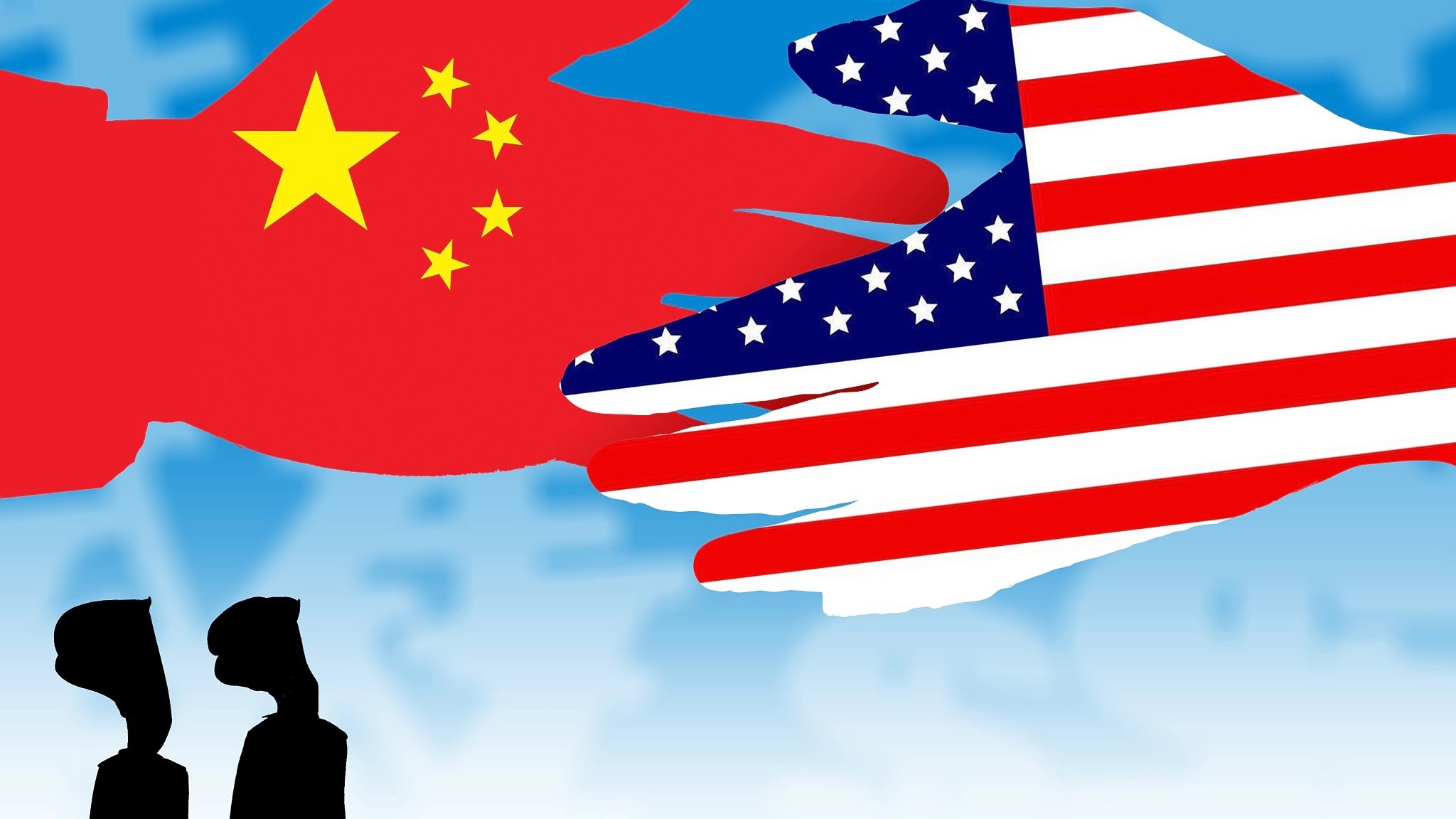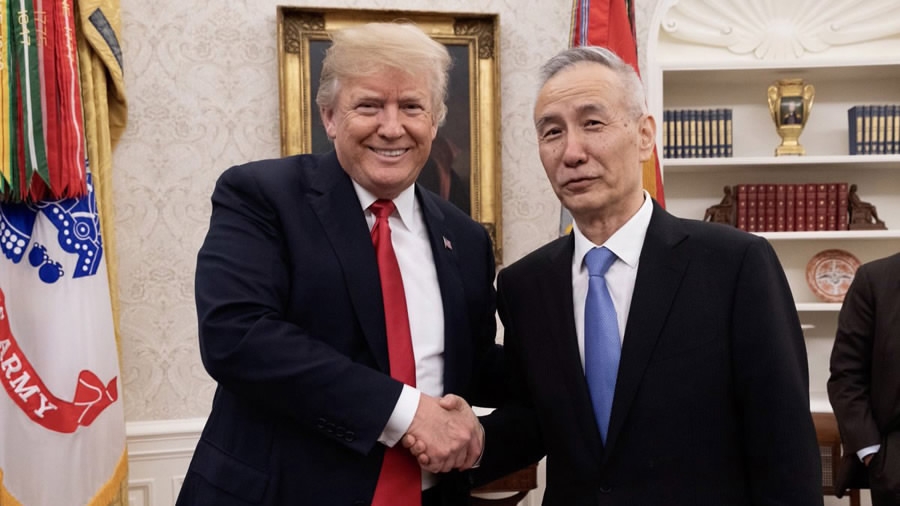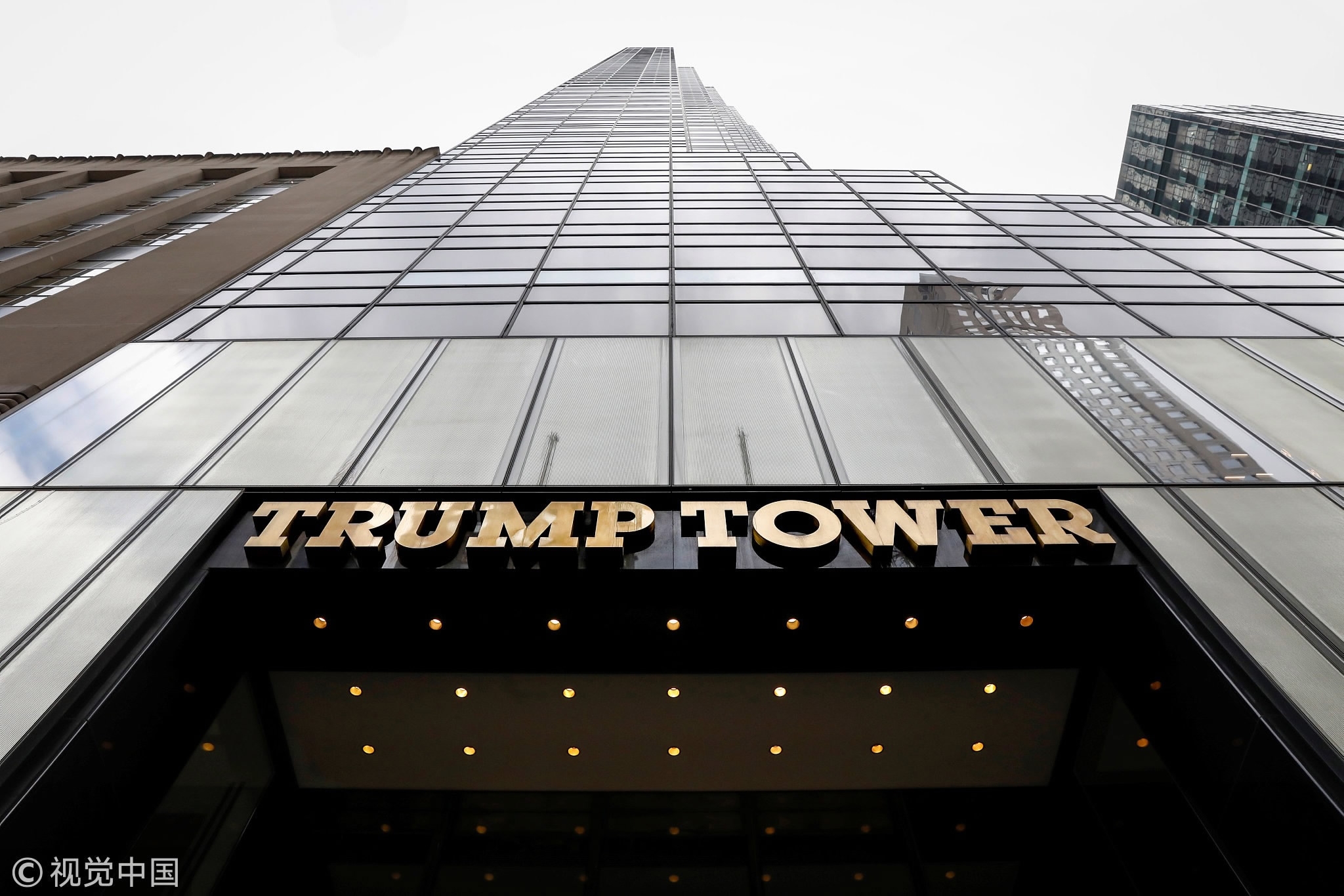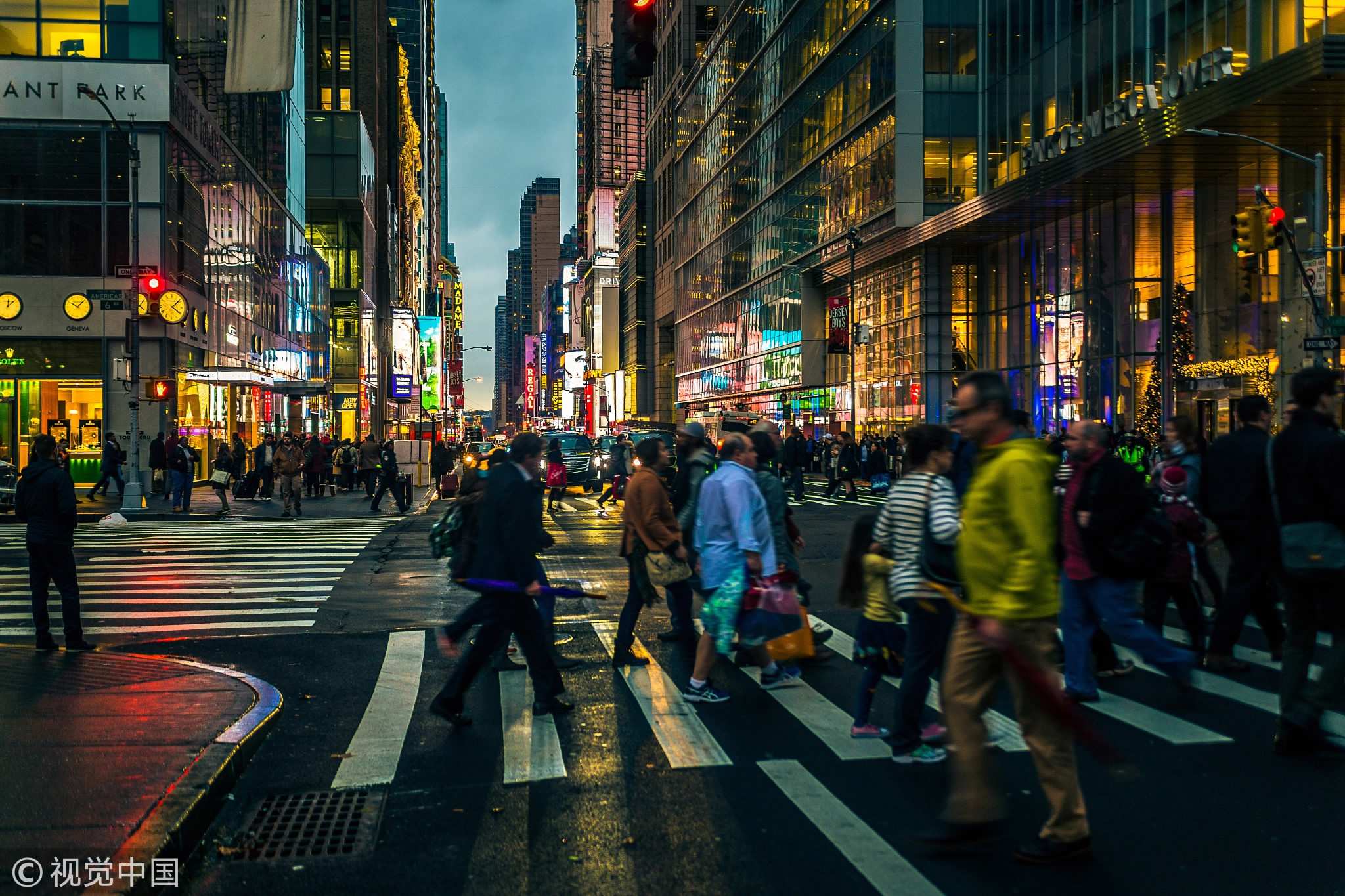The curtain descended on the second round of trade talks between the world's two largest economies Saturday. The parley was “positive, constructive and fruitful,” according to participants.

This narrative, subtly different from the outcome of the first sit-down in Beijing, signaled much progress for the high-stakes talks, serving an upbeat prelude to further negotiations in the future.
It’s noted the White House proactively tempered the tensions in this round of talks. US President Donald Trump met with Chinese President Xi Jinping’s special envoy and Vice Premier Liu He, which had not been on the agenda previously. Trump wore his iconic smile in a Twitter photo. Peter Navarro – the No.1 China hawk in the US trade delegation who headed to Beijing in the first round of talks – was excluded in the Washington talks. Moreover, Trump softened his tone on China’s ZTE before Liu’s delegation arrived in the US.

US President Donald Trump meets with Chinese President Xi Jinping's special envoy and Vice Premier Liu He at the White House, May 17, 2018. /Donald Trump's Twitter account photo
The US president’s changing attitude is worth complimenting. When he initiated the trade provocations against China in early March, he said, "Trade wars are good, and easy to win." His instinct to win has been driving him to constantly challenge others whom he deemed a threat.
Trump, who is turning 72 by next month, had long bathed in a self-rendered jubilation of bearing the palm since a young age. Born to Fred Trump, a master builder of households in Brooklyn and Queens boroughs, he expanded his father’s real estate empire to Manhattan, eager to bring his own brand of luxury to the city’s elite.
In his early 20s, he turned the Commodore Hotel into the Grand Hyatt after successfully acquiring a 40-year-long tax reduction from the city government. Within two years, the dilapidated neighborhood around the hotel also got revamped.
In the 1980s, he bought the air over the famous Tiffany’s jewelry on Fifth Avenue and built the landmark Trump Tower beside it. The 58-floor behemoth became a microcosm of the era’s glamorous vanity.
Speaking to Rona Barrett who interviewed him in 1980 as one of the new super rich, the young Trump said, “The world is made up of people with either killer instincts or without killer instincts. And people that seem to emerge are the people that are competitive and driven and with a certain instinct to win.”

Trump Tower on Fifth Avenue is seen in New York City, US, April 10, 2018. (Photos: VCG)
Driven by the impulse to win, Trump employed then infamous lawyer Roy Cohn, Joe McCarthy’s right-hand man, and sued New York City for denying his tax abatement appeal in constructing the Trump Tower.
In 1984, he won the case and got 74 million US dollars in tax relief. With government subsidies, Trump made a huge profit while making a name for himself as New York’s most important real estate developer.
He then ventured to renovate then-desolate Central Park and Wall Street before stamping his name in gold on his brick-and-mortar empires the world over. There’s no denying that he’s a top-notch tycoon, but he’s also the man who brought the enlarging wealth gap of New York to the forefront. New York was once descried as “a tale of two cities.”
The killer instinct has accompanied the business mogul for almost five decades, even after he ascended to the US presidency. China’s unprecedented development over the past 40 years has made itself an unprecedented rival to the US economy since the end of World War II. Facing the narrower gap, Trump could not stand losing.
He once viewed the country as one of his vanity projects where he built the biggest, shiniest building in New York City.

Midtown Manhattan in the evening
By wading into a trade war, he actually shone a bright light on an already fragmented America divided along socioeconomic lines. The trade row with the US’ largest trade partner over the past months have caused direct losses for American farmers, especially those who grow soybean and sorghum, as well as red wine producers.
In the long run, the skirmish will also harm the interests of its staggering middle class, since imposing prohibitive tariffs on Chinese imports will push up the production cost of American commodities. The wealth gap across the country will be further expanding.
In this unilateral move, Trump risked not just bringing about "a tale of two countries" but also bifurcating the existing economic order, creating "a tale of two worlds." On one side is the US, which is still on top but slowly losing economic clout and global influence as a result of its administration's brash policies; on the other is China, an economic power that is slowly gaining the support of countries that were once allies of the US.
Fortunately, Trump recognized in time that it’s not easy – actually impossible – to win a trade war. By changing his attitude, he helped avert a full-blown trade war and the bleak scenario where the US is left alone on the planet.
It’s hoped that in future trade talks, if necessary, the two powerhouses can embrace multilateralism in concerted efforts.
(The author is a reporter for CGTN Digital.)


